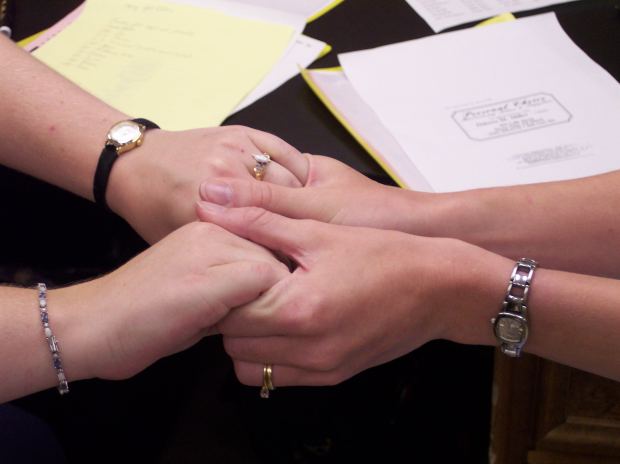The Social Security Administration makes it notoriously difficult for people to secure federal disability benefits. In fact, a rigorous process is applied to almost every case, and the denial rate is over 50 percent.

Now, our Social Security Disability Insurance attorneys in Massachusetts have learned that a number of upcoming changes may make the process even tougher. This makes having strong legal representation all the more important for applicants moving forward.
As reported recently by The Wall Street Journal, those changes include updating listings for use by vocational experts, updating qualification requirements, require full disclosure of all medical records, initiatives to reduce backlogs, anti-fraud investigations and further scrutiny of Social Security Administration judges.
Let’s start with the first change, which involves updating the listings. Anytime someone applies for disability benefits, the agency takes into consideration not only a person’s ability to work, but a person’s ability to work within their field of experience in a given local area. The professional tapped to determine this is called a vocational expert. These individuals work to match the person’s work experience with a variety of jobs in a given area.
The agency requires these vocational experts to use a “dictionary” of some 10,000 occupational listings to determine possible matches. However, this dictionary hasn’t been updated since the early 1990s. Some of the jobs still listed include things blacksmith and chic sexer (which is someone whose sole purpose it is to figure out the gender of a chicken). These outdated models fail to account for newer technology.
The updates probably won’t be finished until 2016, and possibly even later. But here’s the problem for applicants: Many newer technology fields don’t require the same kind of physical labor (i.e., standing, squatting, lifting, pulling, walking, etc.) that many older professions do. Tech jobs tend to be a bit more sedentary, which means that once the dictionary is rewritten, even more people could lose their bid for benefits.
Secondly, there is “the grid.” This is the standard that administrative law judges use to make a ruling on whether someone qualifies for benefits. It’s not 100 percent full-proof, but generally, if you are over the age of 55, have a low level of education, a heart condition and severe depression, you are far more likely to get benefits that someone in their late 30s with mild depression and a degree in engineering. However, like the vocational listings, the grid hasn’t been updated in many years. Some have suggested that doctors and lawyers work the system in order to secure benefits for a particular applicant. They are seeking to make it harder to predict the lines upon which the judge will decide. While allowing for a greater degree of discretion among judges could result in more favorable results for some applicants, it could also result in judgments that widely vary from judge to judge, district to district and applicant to applicant. Almost inevitably, there will be some unfairness.
The next issue to be addressed will be that of disclosure. A few years ago, the Journal reported on a single law firm that routinely withheld from administrative law judges medical records that reportedly would have hurt a client’s claim. Of course, this is highly unethical, and we do not believe representative of the vast majority of attorneys representing SSDI applicants. And yet, the alleged actions of one rouge firm has prompted agency officials to announce they plan to propose a new rule that will formalize how medical records are submitted, requiring that everything be turned in to judges. Of course, this is likely to mean that irrelevant information will be submitted as well, giving judges even more documents to sort through and likely causing the process to be slowed even further.
That brings us to the next point, which is caseload. There is currently a large backlog of SSDI cases, and the administration has for the last several years required judges to handle between 500 to 700 cases every year. In some instances, judges were handling up to 1,000 cases annually. That is two to three cases a day – not nearly enough time to properly weigh the merits. Judges are pushing to have their case loads significantly reduced, but currently, their annual cap is set at 800.
It is for this reason, the agency says, that it intends to work with the inspector general to launch a project that will serve as an anti-fraud initiative to determine whether third-party groups (i.e., doctors and lawyers) are defrauding the system. As of right now, the target and scope of this project have yet to be announced.
And finally, the administration has said it will formalize a narrower job description for administrative law judges, who will soon reportedly be subject to numerous additional layers of supervision. These rules will also call for additional training and supervision for judges whose rulings tend to sway too often one way or the other.
If you are considering filing for SSDI in Massachusetts, call for a free and confidential appointment at (617) 777-7777.
Additional Resources:
Six Changes Social Security Is Making to Its Disability Program, Dec. 26, 2013, By Damian Paletta, Wall Street Journal
More Blog Entries:
Government Changes Rules for SSD Judges, Jan. 9, 2014, Boston Social Security Disability Lawyer Blog
 Massachusetts Social Security Disability Lawyers Blog
Massachusetts Social Security Disability Lawyers Blog

